Camber Station, Rye and Camber tramway
A disused tramway in Sussex.
Report by urban75 editor, updated July 2006
In 1895 the Rye and Camber Tramway was opened to connect Rye with a new golf course at Camber.
Designed to cater for the transportation needs of golfers and their caddies, the steam railway also took fishermen from Rye to their fishing boats moored opposite Rye Harbour village, where a river ferry could be hailed.
The line's promoters cunningly decided to build the line entirely on private land, thereby avoiding the necessity of having to obtain an Act of Parliament.
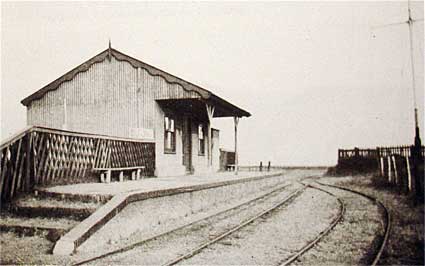
Old Camber station, circa 1910. Note the run around loop.
Built to a 3ft gauge with economy in mind, the 1.75 mile line ran parallel to the River Rother from its Rye terminus as far as Broadwater Beach, before heading across Northpoint beach and terminating opposite Rye Harbour Village.
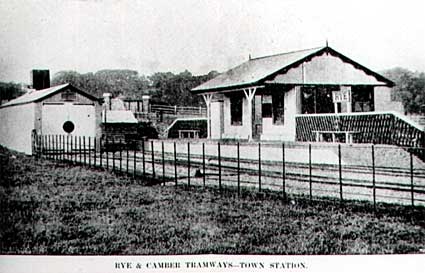
Original Rye Station terminus. Contemporary postcard view, 1895.
The track was spiked directly to wooden sleepers to save cost, and there was two loops at each end of the line to let the engines run around the coaches.


Diagram of Camber/Golf Links station.
The two termini were both built of corrugated iron and wood, offering a canopy, waiting room and booking office.
With only one engine in steam at any given point, there was no need for signalling.
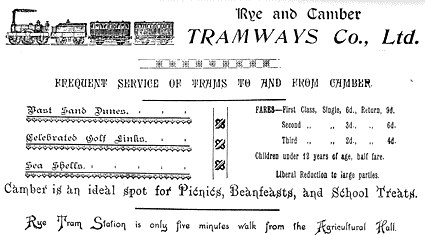
Handbill advertising fares and timetable, June 1901
When it opened on Saturday, 13th July, 1895, the line was equipped with one steam engine and a passenger coach, divided into first and second class compartments.
The engine, named 'Camber' and accompanying carriage were built by W.G.Bagnall Limited of Stafford.
Although capable of better things, the engine normally sauntered around the track at a stately 10mph, pulling a three ton passenger car.
The coach, divided into first and second class sections, was around twenty-six feet long with entrance platforms at each end.
The first class portion could accommodate 12 passengers and came with cushioned seats and curtains, while the cheapskates in second class had to make do with longitudinal strip-wood seating .
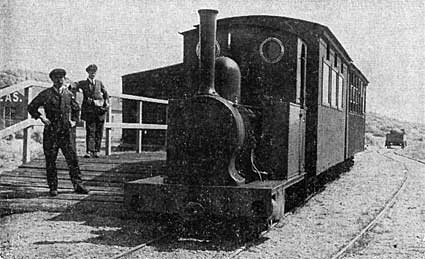
The locomotive 'Camber' stands at Camber Sands station, 1924.
Traffic was encouraging, with 18,000 tickets being sold in the first six months, prompting the company to invest in a second, more powerful, steam engine in 1897, patriotically named 'Victoria'.

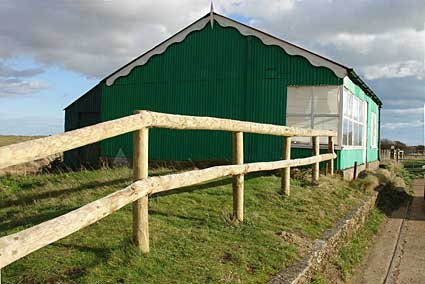
Modern view of the well-preserved Camber/Golf Links station.
The company continued to prosper, adding a half mile extension to a deserted location at Camber Sands on 13th July, 1908.
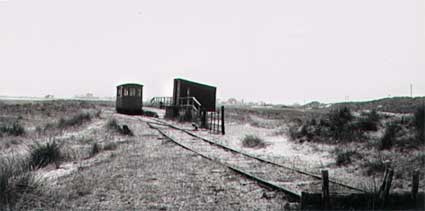
The basic facilities on offer at Camber Sands terminus, stuck in the middle of nowhere
The station was extremely low on facilities, offering nothing more than a raised platform made from old standard gauge sleepers, with a small hut being added later.
Endeavouring to make the most of its remote location, the timetable described the station as being 'far from the madding crowd' and a perfect location for picnics.
With the extension complete, the original Camber terminus was renamed as Golf Links, and the service ramped up in the summer months to 13 trains each way daily, of which only seven ran through to Camber Sands.
A special Saturday late night train ran for golfers at 8:15pm.

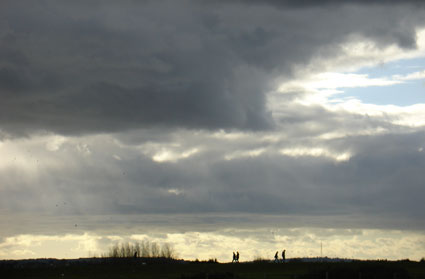
The old line forms an attractive walk to Camber Sands.
In the winter months, the service was cut back to seven trains each way daily, nine trips on Saturdays and four on Sunday, with all trains terminating at the Golf Links station.
Road competition, rising coal prices and high maintenance costs forced economies on the line in the 1920s, with the steam locomotives being replaced by a four wheeled petrol tractor in 1924.
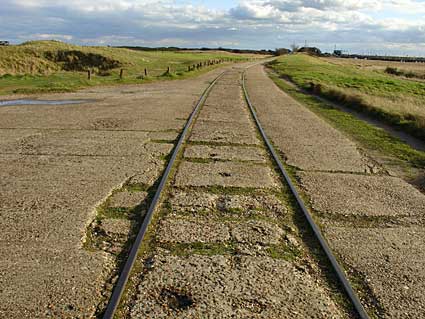
You can still see stretches of the old line along the route
The winter service was abandoned completely in 1925-6 and a long period of decline set in.
With the outbreak of war in 1939, the line was closed to the public and used by various military and naval purposes.
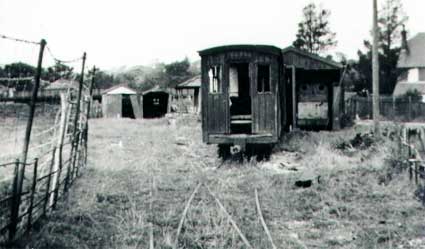
Crumbling remains of Rye station, 1946
Unhappily, the track and rolling stock was in such dreadful condition at the end of the war that the company decided to wind up the railway forever.
Although the Golf Links/Camber station has survived remarkably well for a corrugated iron structure, no trace remains of the Rye terminus or the station at Camber Sands.

2006 updates:
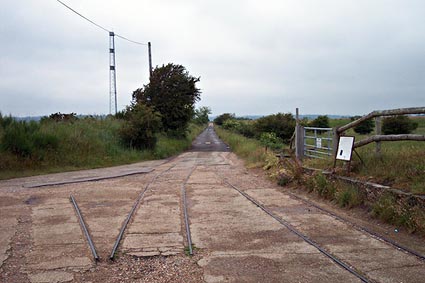
Looking towards Rye. Note the rails still embedded in the road. (Pic: Chris Zanf)
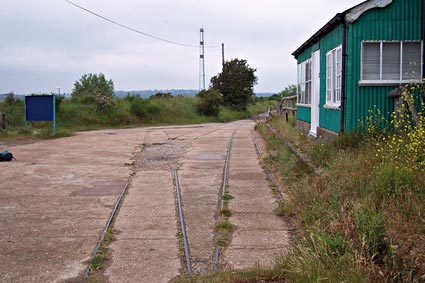
Looking towards Rye with platform and station building (Pic: Chris Zanf)
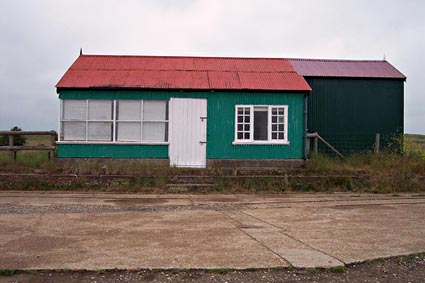
Old Camber Golf Links Station (Pic: Chris Zanf)
Sources:
"Adams' Rye Guide, 1934", now in its 26th edition - an essential purchase for visitors to Rye!
Colonel Stephen's Museum: hfstephens-museum.org.uk
|

